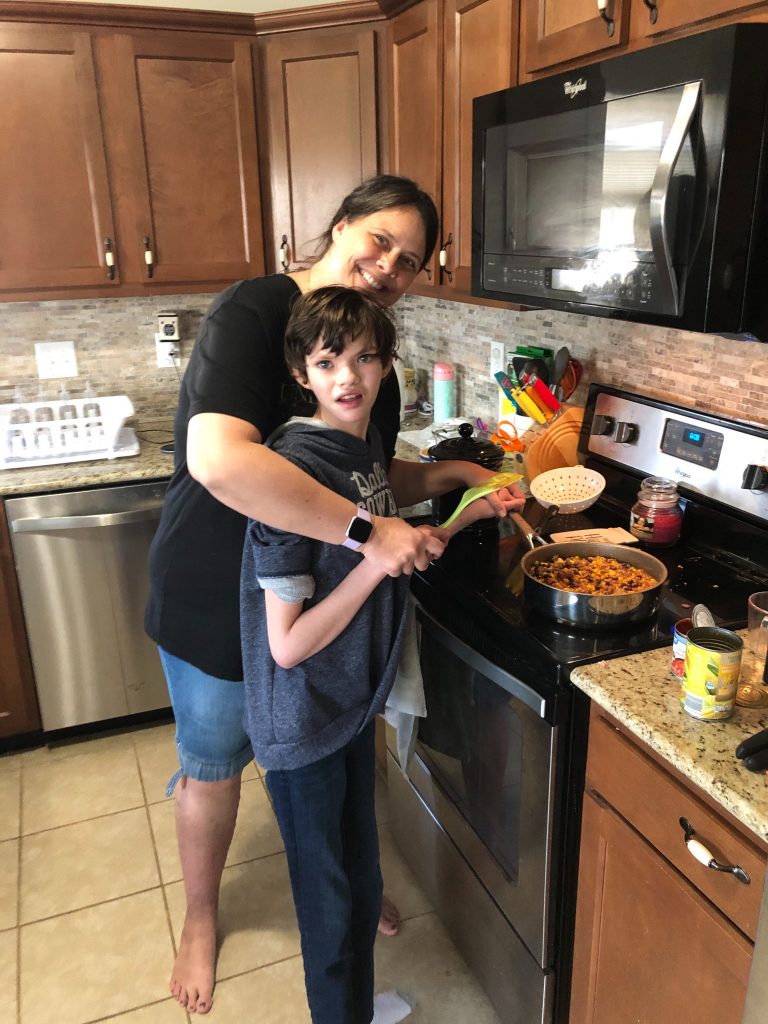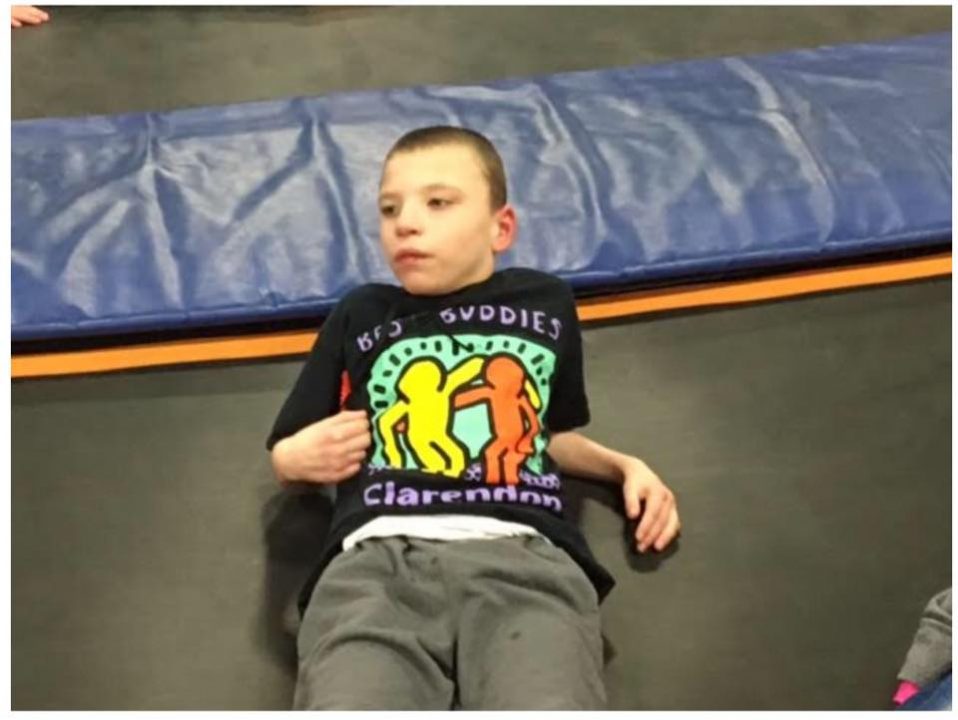Five Ways You Can Keep Your Sanity during Quarantine
By Michelle Myatt, MSW, M.Ed, Vice President 5p- Board of Directors
- Take time for yourself!
Stay hydrated and eat well. Good nutrition is vital to keeping you on your toes. Make sure you are staying active. Take a walk, find an exercise routine online or make one up with items you have at home. Enjoy hobbies you normally don’t have time for. Carve out 30 minutes a day that is just yours…this might mean getting up before your children or having older children watch younger siblings. This is your time to spend anyway you want. You will be better because of it. I promise. - Forget the housework and chores for a few minutes and find time to just play with your kids. As parents, we are always so wrapped up in doctor appointments, therapy, schoolwork and playing taxi for all the activities our kids are involved in. Play time is good therapy for adults and kids alike. Reconnect with your kids and learn something new about them. Build a fort out of blankets, play board games, make up a scavenger hunt (inside or outside), have a dance party in the living room or make a craft together. You might even make items to leave on the porch for loved ones you are missing.
- Make a routine for yourself and stick to it. Pencil in the time for you, chores (let the kids help you) and time to help your kids get through their schoolwork. If you are working from home, add this time to your schedule as well. Make sure you are going to bed and waking up at the same time each day. Shower and dress just like you would if you had to leave your home for work or school. Routines are important and allow us to feel as if we have some control over our day. We can look back at a checklist and see what we accomplished that day.
- Limit your time watching and listening to COVID-19 updates. It’s good to be aware of your surroundings, but it’s also easy to become consumed by the sadness and anxiety that comes with inundating yourself with too much. Instead, reach out to friends and family. Call someone you haven’t spoken to in a while. Don’t forget those in nursing homes who are feeling very isolated right now. Did you meet someone at the last 5p- Society Conference? Contact them and see how they are doing.
- Lastly, if you feel as if you are really struggling, reach out to self help groups in your community. Your child’s school social worker or counselor would be a great place to start. They are well-aware of the resources in your area. If you need to chat with someone regarding concerns for your Cri-du-Chat child, you can find contact information on the 5p- Society web page.
Five Ways to Help My Children Cope with Quarantine

- Routine – stick to a schedule. Write it out, take pictures and make a visual schedule, or record it on your child’s device or tablet. Kids want to know what is expected of them and what they will be doing. This is a great time to remind kids to be flexible. Sometimes routines change. When they do, outline some ways you expect your child to cope with those changes (use their words, take a deep breath or two, or hug a teddy bear real tight)
- Nutrition – make sure your kids are not snacking so much throughout the day that they do not eat the nutritious food you prepare for main meals. This only frustrates everyone. We all know how moody kids can be when they are hungry or thirsty. Their bodies are sensitive to big changes in blood sugar. If your child has a feeding tube…you might need to set a timer to remind yourself. You have a lot on your mind right now and we cannot always depend on our kids to tell us they are hungry.
- Communication – talk to your kids at their level about Corona Virus and Quarantine. Give them facts that you feel they can handle without overwhelming them. Keep adult conversations away from little ears and limit their time in front of the television where updates seem to be constant. If you are having trouble talking with your child about what is going on, try reading the social story I have included. I wrote this for my daughter, Delaney (14) who is struggling with why we can’t see grandma and why we can’t go to school. You can have typical siblings illustrate the book which will also be good for their little minds as well.
- Social – our kids are missing so many important people in their lives. Make video calls to friends and family regularly. Don’t underestimate how helpful it is even to toddlers to see and hear their favorite people, even if it is through a screen. My ten-year-old has started handwriting letters to friends and mailing them. These are kids who have grown up with technology. So, the idea of writing a letter, dropping it in the mail, and learning to be patient while you wait for a return letter, is relatively foreign to them. It helps to break up the monotony of life right now. This works for grandparents too. Remember how fun it was to have a pen pal when you were little?
- Behavior – this is a crazy time for everyone with so many uncertainties. When kids feel stress, they communicate that through their behavior. You may see an increase in nightmares, whining, meltdowns and maybe even aggression. In addition to following the steps above, try teaching little ones to take deep breaths by blowing bubbles. You can make a spot in the house where your child or children can go if they are feeling overwhelmed. Give them pictures of family members and friends to look at, a stuffed animal, pillows and a soft blanket. Some kids may love to listen to music or even play an instrument. Big bear hugs or maybe a warm bath might be helpful. There are many scents that can be calming as well…lavender and eucalyptus are two of our favorites in my house. Lower your expectations a bit and give kids the benefit of the doubt when you can. They, too, are handling this the best way they can. They will be watching you for cues, so be sure to show them how you are taking care of yourself as well. Keep reminding them that this won’t last forever. We will get through this…together.








